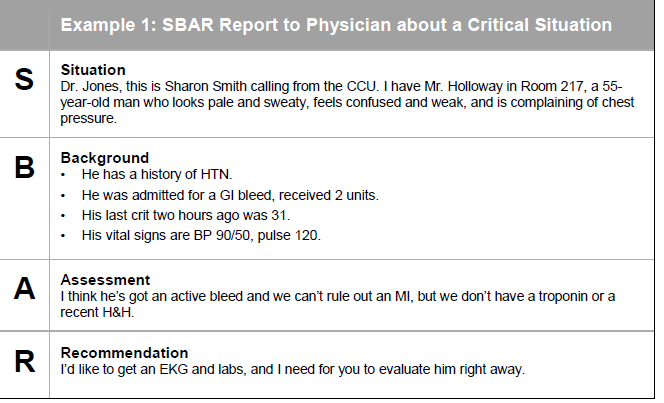Note Taking is one of the primary skills that we need in all organised jobs. It is not just about assisting someone and then taking notes; it is all the more important when you are part of a work-chain where Notes written by you are decisive agents of further actions. As the demand for nursing professionals is on the rise in the whole world so is the role of Skilled Professionals is on the rise.
As a Nursing professional, one needs to be alert about the importance of Note Taking as the action-plan for treatment depends significantly on what is in the Notes taken by the nurses. The chart hanging on the edge of the patient's bed isn't just a bundle of pages. The web is full of content that guides the students pursuing nursing courses about their subjects, we have tried to introduce them to a few things that are related to their Professional Communication Skills.
SBAR is an easy to use, structured form of communication that enables information to be transferred accurately between individuals. SBAR was originally developed by the United States military for communication on nuclear submarines but has been successfully used in many different healthcare settings, particularly relating to improving patient safety. There is a SOAP (Subjective Objective Assessment Plan) that is made in the hospital and the Notes by the Nursing Team, make that possible.
The caregivers (Nursing Team) has this responsibility to prepare the Nursing documentation and that is subsequently used in hospital records. These are important things as clients and government agencies may also ask for the same.
This is the same process that the Nursing Students are already observing while on training or internship duty. Noting down the context of getting the patient admitted and putting the records of background check followed by the assessment remarks and recommended actions for further betterment.
There are several ways to write a note, but it makes it easy if you apply these four principles.
1. Situation
2. Background
3. Assessment
4. Recommendation
(S) Situation: What is the situation you are calling about?
o Identify self, unit, patient, room number.
o Briefly state the problem, what is it, when it happened or started, and how severe.
(B) Background: Pertinent background information related to the situation could include the following:
o The admitting diagnosis and date of admission
o List of current medications, allergies, IV fluids, and labs
o Most recent vital signs
o Lab results: provide the date and time test was done and results of previous tests for comparison
o Other Clinical Information
o Code Status
(A) Assessment: What is the nurse’s assessment of the situation?
(R) Recommendation: What is the nurse’s recommendation or what does he/she want? Examples:
o Notification that the patient has been admitted
o The patient needs to be seen now
o Order change
NOTE: Less experienced clinical staff can sometimes be anxious about making recommendations. When this is the case, offer extra support, encouragement and training. A good place to start is by trying the tool with supportive colleagues and to do role play to try it out. Hospitals using SBAR have found that notepads or paper with the tool printed on them, pocket cards and stickers on telephones are useful aides in the early stages of using the tool within an organisation.


Note Taking is not just for Nursing Professional, rather it is important to know the standard methods in other professions to make working smart.
Article &Template References (Educational Use Only):
Institute for Healthcare Improvement
Reference: Download this pdf for Detailed Explanation
PC: PEXELS


